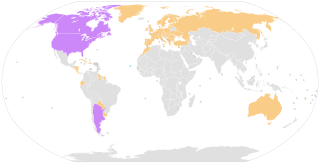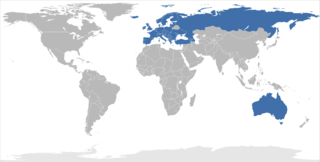
The European patent with unitary effect, more commonly known as the unitary patent, is a European patent which will benefit from unitary effect in the participating member states of the European Union. Unitary effect may be requested by the proprietor within one month of grant of a European patent, replacing validation of the European patent in the individual countries concerned. Infringement and revocation proceedings will be conducted in front of the Unified Patent Court (UPC), which decisions will have a uniform effect for the unitary patent for the participating member states as a whole rather than for each country individually. The unitary patent may be only limited, transferred or revoked, or lapse, in respect of all the participating Member States. Licensing is however to remain possible for part of the unitary territory. The unitary patent may coexist with nationally enforceable patents in the non-participating states. The unitary patent's stated aims are to make access to the patent system "easier, less costly and legally secure within the European Union" and "the creation of uniform patent protection throughout the Union".

The European Convention on Human Rights is an international convention to protect human rights and political freedoms in Europe. Drafted in 1950 by the then newly formed Council of Europe, the convention entered into force on 3 September 1953. All Council of Europe member states are party to the Convention and new members are expected to ratify the convention at the earliest opportunity.

The Treaty establishing a Constitution for Europe was an unratified international treaty intended to create a consolidated constitution for the European Union (EU). It would have replaced the existing European Union treaties with a single text, given legal force to the Charter of Fundamental Rights, and expanded qualified majority voting into policy areas which had previously been decided by unanimity among member states.

The Convention for the Suppression of the Traffic in Persons and of the Exploitation of the Prostitution of Others was approved by the United Nations General Assembly on 2 December 1949, and entered into force on 25 July 1951. The preamble states:
"Whereas prostitution and the accompanying evil of the traffic in persons for the purpose of prostitution are incompatible with the dignity and worth of the human person and endanger the welfare of the individual, the family, and the community"

The Copenhagen criteria are the rules that define whether a country is eligible to join the European Union. The criteria require that a state has the institutions to preserve democratic governance and human rights, has a functioning market economy, and accepts the obligations and intent of the EU.

The Framework Convention for the Protection of National Minorities (FCNM) is a multilateral treaty of the Council of Europe aimed at protecting the rights of minorities. It came into effect in 1998 and by 2009 it had been ratified by 39 member states.
The European Convention for the Protection of Pet Animals is a treaty of the Council of Europe to promote the welfare of pet animals and ensure minimum standards for their treatment and protection. The treaty was signed in 1987 and became effective on 1 May 1992, after at least four countries had ratified it. Adherence to the treaty is open and not limited to member countries of the Council of Europe. As of June 2020, it has been ratified by 24 states.
The European Landscape Convention of the Council of Europe, also known as the Florence Convention, is the first international treaty to be exclusively devoted to all aspects of European landscape. It applies to the entire territory of the Parties and covers natural, rural, urban and peri-urban areas. It concerns landscapes that might be considered outstanding as well as everyday or degraded landscapes. The Convention is aimed at: the protection, management and planning of all landscapes and raising awareness of the value of a living landscape.

The Hague Convention on parental responsibility and protection of children, or Hague Convention 1996, officially Convention of 19 October 1996 on Jurisdiction, Applicable Law, Recognition, Enforcement and Co-operation in respect of Parental Responsibility and Measures for the Protection of Children or Hague Convention 1996 is a convention of the Hague Conference on Private International Law. It covers civil measures of protection concerning children, ranging from orders concerning parental responsibility and contact to public measures of protection or care, and from matters of representation to the protection of children's property. It is therefore much broader in scope than two earlier conventions of the HCCH on the subject.
Stem cell research policy varies significantly throughout the world. There are overlapping jurisdictions of international organizations, nations, and states or provinces. Some government policies determine what is allowed versus prohibited, whereas others outline what research can be publicly financed. Of course, all practices not prohibited are implicitly permitted. Some organizations have issued recommended guidelines for how stem cell research is to be conducted.

The International Convention for the Protection of All Persons from Enforced Disappearance (ICPPED) is an international human rights instrument of the United Nations and intended to prevent forced disappearance defined in international law, crimes against humanity. The text was adopted by the United Nations General Assembly on 20 December 2006 and opened for signature on 6 February 2007. It entered into force on 23 December 2010. As of February 2022, 98 states have signed the convention and 67 have ratified it.
Article 6 of the European Convention on Human Rights is a provision of the European Convention which protects the right to a fair trial. In criminal law cases and cases to determine civil rights it protects the right to a public hearing before an independent and impartial tribunal within reasonable time, the presumption of innocence, right to silence and other minimum rights for those charged in a criminal case.

In the European Union (EU), enhanced cooperation is a procedure where a minimum of nine EU member states are allowed to establish advanced integration or cooperation in an area within EU structures but without the other members being involved. As of October 2017, this procedure is being used in the fields of the Schengen acquis, divorce law, patents, property regimes of international couples, and European Public Prosecutor and is approved for the field of a financial transaction tax.
The European Union's (EU) Treaty of Lisbon, in force since 1 December 2009, requires the EU to accede to the European Convention on Human Rights (ECHR). Article 6 of the consolidated Treaty on European Union states "The Union shall accede to the European Convention for the Protection of Human Rights and Fundamental Freedoms. Such accession shall not affect the Union's competences as defined in the Treaties." The EU would thus be subject to its human rights law and external monitoring as its member states currently are. It is further proposed that the EU join as a member of the Council of Europe now that it has attained a single legal personality in the Lisbon Treaty.

The Council of Europe Convention on preventing and combating violence against women and domestic violence, better known as the Istanbul Convention, is a human rights treaty of the Council of Europe against violence against women and domestic violence which was opened for signature on 11 May 2011, in Istanbul, Turkey. The convention aims at prevention of violence, victim protection and to end the impunity of perpetrators. As of March 2019, it has been signed by 45 countries and the European Union. On 12 March 2012, Turkey became the first country to ratify the convention, followed by 34 other countries from 2013 to 2021. The Convention came into force on 1 August 2014. In 2021, Turkey became the first and only country to withdraw from the convention, after denouncing it on 20 March 2021. The convention ceased to be effective in Turkey on 1 July 2021, following its denunciation.
The Council of Europe Convention on the Protection of Children Against Sexual Exploitation and Sexual Abuse is a multilateral Council of Europe treaty whereby states agree to criminalise certain forms of sexual abuse against children. It is the first international treaty that addresses child sexual abuse that occurs within the home or family.

The Treaties of the European Union are a set of international treaties between the European Union (EU) member states which sets out the EU's constitutional basis. They establish the various EU institutions together with their remit, procedures and objectives. The EU can only act within the competences granted to it through these treaties and amendment to the treaties requires the agreement and ratification of every single signatory.

The Council of Europe Convention on Laundering, Search, Seizure and Confiscation of the Proceeds from Crime and on the Financing of Terrorism, also known as the Warsaw Convention or CETS 198, is a Council of Europe convention which aims to facilitate international co-operation and mutual assistance in investigating crime and tracking down, seizing and confiscating the proceeds thereof.

The Convention on Laundering, Search, Seizure and Confiscation of the Proceeds from Crime, also known as the Strasbourg Convention or CETS 141, is a Council of Europe convention which aims to facilitate international co-operation and mutual assistance in investigating crime and tracking down, seizing and confiscating the proceeds thereof. The Convention is intended to assist States in attaining a similar degree of efficiency even in the absence of full legislative harmony.

The European Convention for the Protection of Animals kept for Farming Purposes, also known as the Farm Animal Convention, is an animal welfare treaty of the Council of Europe, adopted on 10 March 1976 in Strasbourg, and effective since 10 September 1978.